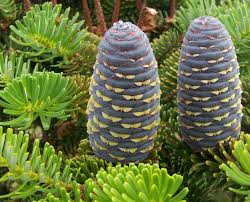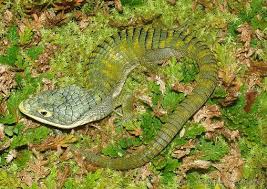3 of the endangered animals
1.
Abies koreana
Occurs in sub-alpine areas on shallow mountain soils poor in humus
content. Its elevational range is between 1,000 m and 1,900 m asl. The
climate is cool temperate, with a summer monsoon bringing the annual
precipitation above 1,600 mm. Abies koreana grows in pure stands or mixed with Betula ermanii, Taxus cuspidata, Prunus maximowiczii, P. sargentii, Cornus kousa with an understory of Sasa quelpartensis on Cheju Island. On the mainland it is also mixed with Picea jezoensis, Pinus koraiensis, P. densiflora, Taxus cuspidata, Quercus mongolica var. mandshurica, Cornus controversa, Acer spp. Fraxinus sieboldiana, Magnolia sieboldii, Sorbus commixta, and several genera of low shrubs, e.g. Juniperus, Deutzia, Ribes and Rhododendron. The forest is usually open and essentially dominated by conifers, with A. koreana a minor component.
2.Abronia chiszari
This is an arboreal species found in the canopy of both cloud forest and
rainforest. These lizards are restricted to forest with tall, mature
trees. Any loss of such trees will be significantly detrimental to the
population. It is not believed to be able to persist in disturbed
habitat.
3.Black Rhino
The black rhinoceros or hook-lipped rhinoceros (Diceros bicornis) is a species of rhinoceros, native to eastern and central Africa including Kenya, Tanzania, Cameroon, South Africa, Namibia, Zimbabwe, and Angola. Although the rhinoceros is referred to as black, its colors vary from brown to gray.
 Black rhino
Black rhino
 Abies koreana
Abies koreana
 Abronia chiszari
Abronia chiszari
Great job
ReplyDeleteyeah i love this
ReplyDelete